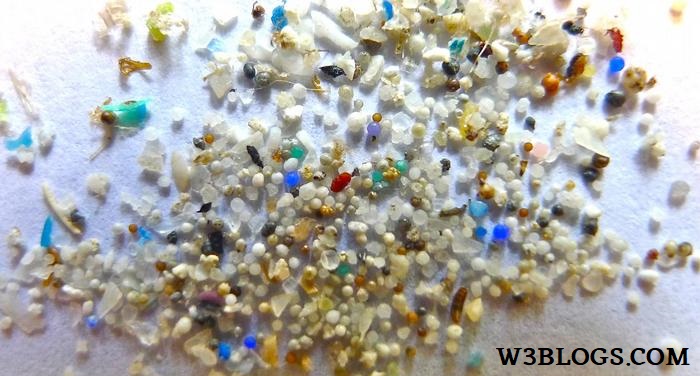
Microplastic means small pieces of plastic made by humans, this is the only thing that is present everywhere on the earth. Now whether they are pieces made out of synthetic fabrics, car tires or contact lenses or anything else that comes in handy every day. They are present in the highest areas of the world, from the glaciers to the deepest trenches of the sea.
Many researches conducted in the past have shown how microplastics can enter the human food chain. Even last year, plastic pieces were found in the water sold in sealed bottles of many famous brands. Recently, Canadian scientists analyzed hundreds of data about the presence of microplastics during research and then compared them to the eating habits of the American people.
Based on this, they have discovered that an adult human being can put around 52,000 pieces of microplastic in their body in a year. For example, in the polluted air we are living in, only 1.21 lakh microplastic particles can enter the body through breath i.e. around 320 pieces of plastic every day. Apart from this, if a person drinks only bottled water, then about 90,000 pieces of plastic can go into his body in a year. A report about this research has appeared in the journal Environmental Science and Technology.
The authors of the report have also pointed out that these figures are estimates. Scientists say that how many plastic particles will go into a person's body will depend on where he lives and what he eats. He also says that the effect of microplastic on the human body is not yet understood properly. However, according to scientists "plastic particles smaller than 130 micrometers have the ability to transfer human tissues and then affect the immune system of that part of the body.

Ilestair Grant is Professor of Ecology at the University of East Anglia. He says that the plastic particles that have been identified in the research have not revealed the "great danger to human health" so far. Grant was not involved in this research. However, he says that only a very small part of the plastic that goes into the body through the breath actually reaches the lungs.
Researchers say that how much microplastic goes into our lungs and stomach and what may be the risk from it, more research will be needed to understand it properly. Scientists also say that the most effective way to prevent microplastics from reaching the human body would be to reduce the manufacture and use of plastic.
The results of this research have come at a time when World Environment Day is being celebrated by the United Nations all over the world. The theme of this time has also been kept air pollution.
HOPE THIS WILL HELP YOU !!!

